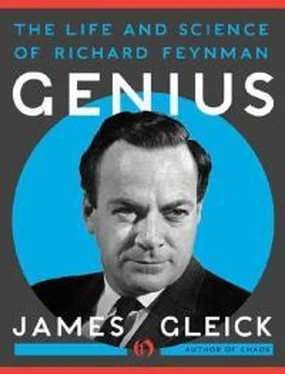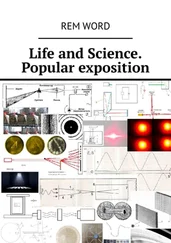Feynman col ected the ten dol ars in 1976.
He already tried to avoid encumbrances as though every invitation, honor, professional membership, or knock at his door were another vine wrapping itself around his creative center. By the time he won the Nobel Prize he had been trying for five years to resign from the National Academy of Sciences. This simple task was taking on a life of its own.
He began by scribbling a note with his dues bil : he paid the forty dol ars, but he resigned. Almost a year later he received a personal letter from the academy’s president, the biologist Detlev W. Bronk (whose original paper on the single nerve impulse he had read as a Princeton student).
He felt obliged to write a polite explanation: My desire to resign is merely a personal one; it is not meant as a protest of any kind… . My peculiarity is this: I find it psychological y very distasteful to judge people’s “merit.” So I cannot participate in the main activity of selecting people for membership. To be a
member of a group, of which an important activity is to choose others deemed worthy of membership in that self-esteemed group, bothers me… .
Maybe I don’t explain it very wel , but suffice to say that I am not happy as a member of a self-perpetuating honorary society.
It was 1961. Bronk let Feynman’s letter sit for months. Then he answered with calculated obtuseness:
Thank you for your wil ingness to continue as a member of the academy… . I have done my best to reduce the emphasis on the “honor” of election… . I am grateful that you wil continue a member at least during my last year as president.
Eight years later, Feynman was stil trying. He re-resigned.
A reply came from the president-elect, Philip Handler, who mused talmudical y, “I suppose that we truly have no alternative, in the sense that surely the Academy must adhere to your wishes,” and deftly slid Feynman’s resignation into the subjunctive mood:
I would consider your resignation a most sorrowful event indeed… . I write to hope that you wil reconsider… . I am reluctant to endorse such an action… . Before processing your request, a procedure for which I trust that the Office of the Home Secretary is in some manner prepared, I very much
hope that you wil let us hear from you further… .
Feynman wrote again, as plainly as he could. Handler replied:
I have your somewhat cryptic note… . We are seeking to increase the meaningful roles of the Academy… . Wouldn’t you rather join us in that effort?
Final y, by 1970, Feynman’s resignation began to seem real even to the academy, though he continued to hear from scientists who wondered whether he would confirm the rumor and explain why.
He turned down honorary degrees offered by the University of Chicago and by Columbia University and thus final y kept the promise he had made to himself on the day he received his doctorate from Princeton. He turned down hundreds of other propositions with a curtness that impressed even his protective secretary. To a book publisher who had invited him to “introduce a draft of fresh air into a rather stuffy area,” he wrote: “No sir. The area is stuffy from too much hot air already.” He refused to sign petitions and newspaper advertisements; the Vietnam War was now drawing the opposition of many scientists, but he would not join them publicly. Feynman, Nobel laureate, found that even canceling a magazine subscription took an entire correspondence. “Dear Professor Feynman,” began a long letter from the editor of Physics Today , the magazine whose second issue had carried his article
about the Pocono conference in 1948: The comment you sent back with our questionnaire on our May issue (“I never read your magazine. I don’t know why it is published. Please take me off your mailing list. I don’t want it.”) poses some interesting questions for us… .
Four hundred words later, the editor had not given up: I apologize for asking any more of your time, but al of us at Physics Today wil appreciate it very much if we can have amplification of your earlier comments.
So Feynman amplified:
Dear Sir,
I’m not “physicists,” I’m just me. I don’t read your magazine so I don’t know what’s in it. Maybe it’s good, I don’t know. Just don’t send it to me. Please remove my name from the mailing list as requested. What other physicists need or don’t need, want or don’t want, has nothing to do with it… . It was not my intention to shake your confidence in your magazine—
nor to suggest that you stop publication—only that you stop sending it here. Can you do that please?
He was hardening his shel . He knew he could seem cold.
His secretary, Helen Tuck, protected him, sometimes sending away visitors while Feynman hid behind her door.
Or he would just shout at a hopeful student to go away—he was working. He almost never participated in the business of his department at Caltech: tenure decisions, grant proposals, or any of the other administrative chores that constitute overhead on most scientists’ time. Caltech’s divisions, like the science departments at every American university, were largely financed through a highly structured process of applications to the Department of Energy, the Department of Defense, and other government agencies.
There were group applications and individual applications, supporting salaries, students, equipment, and overhead. At Caltech a senior professor who could arrange to have the air force, for example, pay a portion of his salary was rewarded with a discretionary kitty with which he could travel, buy a computer, or support a graduate student.
Alone at Caltech, and virtual y alone in physics, Feynman was humored in his refusal to participate in this process. To some col eagues he seemed selfish. It occurred to the historian of science Gerald Holton, however, that Feynman had put on a kind of hair shirt. “It must have been very difficult to live that way,” Holton said. “It does not come easy to make that conscious decision to remain unadulterated.
Culture by definition is very seductive. He was a Robinson Crusoe in the big city, and that isn’t easy to do.” I. I. Rabi once said that physicists are the Peter Pans of the human race. Feynman clutched at irresponsibility and childishness.
He kept a quotation from Einstein in his files about the “holy curiosity of inquiry”: “this delicate little plant, aside from stimulation, stands mainly in need of freedom; without this it
goes to wrack and ruin without fail.” He protected his freedom as though it were a dying candle in a hard wind.
He was wil ing to risk hurting his friends. Hans Bethe turned sixty the year after Feynman won his Nobel Prize, and Feynman refused to send a contribution to the customary volume of articles in his honor.
He was frightened. In the years after the prize he felt uncreative. His Caltech col eague David Goodstein traveled with him to the University of Chicago when he went to address the undergraduates there early in 1967.
Goodstein thought he seemed depressed and worried.
When Goodstein came down to breakfast at the faculty club, he found Feynman already there, talking with someone who Goodstein gradual y realized was the codiscoverer of DNA, James Watson. Watson gave Feynman a manuscript tentatively titled Honest Jim . It was a tame memoir by later standards, but when it was published—under a different title, The Double Helix —it caused an enormous popular stir. With a candor that shocked many of Watson’s col eagues, it portrayed the ambition,
the
competitiveness,
the
blunders,
the
miscommunications, and the raw excitement of real scientists. Feynman read it in his room at the Chicago faculty club, skipping the cocktail party in his honor, and found himself moved. Later he wrote Watson: Don’t let anybody criticize that book who hasn’t read it through to the end. Its apparent minor faults and petty gossipy incidents fal into place as deeply
Читать дальше












